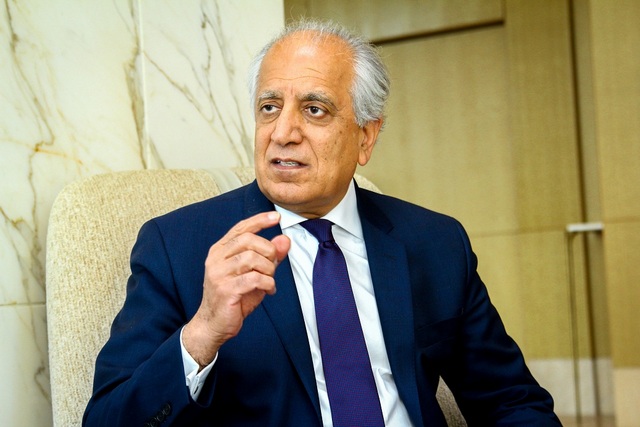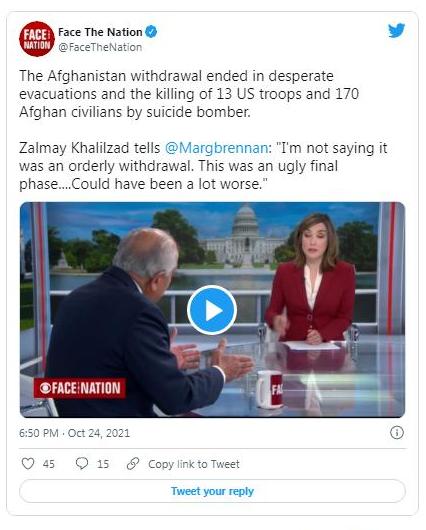


Former U.S. envoy to Afghanistan: ‘We all are unhappy’ with ‘ugly final phase’ of withdrawal

By Jessica Chasmar
- Former U.S. envoy to Afghanistan Zalmay Khalilzad lamented what he described as the "ugly final phase" of the U.S. military withdrawal from Afghanistan in his first interview since he resigned last week. Khalilzad, who was tapped in 2018 by then-President Donald Trump as the U.S.'s chief negotiator with the Taliban, told CBS News’ "Face the Nation" host Margaret Brennan that he left the Biden administration less than two months after its chaotic Aug. 30 withdrawal because internal debates weren't based in reality.
-
"One reason I left the government, as I wrote in my letter, is that the debate wasn't really, as it should be, based on realities and facts of what happened, what was going on and what our alternatives were," he said. "The decision ultimately was made to put conditions-based aside and follow a calendar basis."
Khalilzad stopped short of criticizing President Biden, but said the withdrawal that he negotiated, known as the Doha Agreement, was meant to hold the Taliban to certain conditions. He explained in his resignation letter Monday that one of those conditions that never came to fruition was that the Taliban negotiate directly with the Afghan government to strike a "power-sharing agreement and a comprehensive and permanent ceasefire."
He told CBS that Biden chose to pull out of Afghanistan without those certain conditions because "there would have been consequences" for remaining in the country past the deadline.

Brennan pushed back, noting that 13 American service people were killed during the chaotic evacuation after ISIS-K suicide bombers attacked the Kabul airport.
"So this wasn't an orderly withdrawal," Brennan argued.
"I'm not saying it was an orderly withdrawal," Khalilzad responded. "This was an ugly final phase. No doubt about it. Could have been a lot worse. The Talibs did help with the withdrawal. Gen. McKenzie would tell you they did everything we asked them to do during that final phase.
"It could have been a lot worse," he continued. "Kabul could have been destroyed, street to street fighting could have occurred. I went to Afghanistan after 30-plus years after the Soviet withdrawal and what happened? Everywhere you looked, it was destruction like some German city after World War II. This could have been a lot worse. It could have been a lot worse. It can still be a lot worse, or it can get better."
